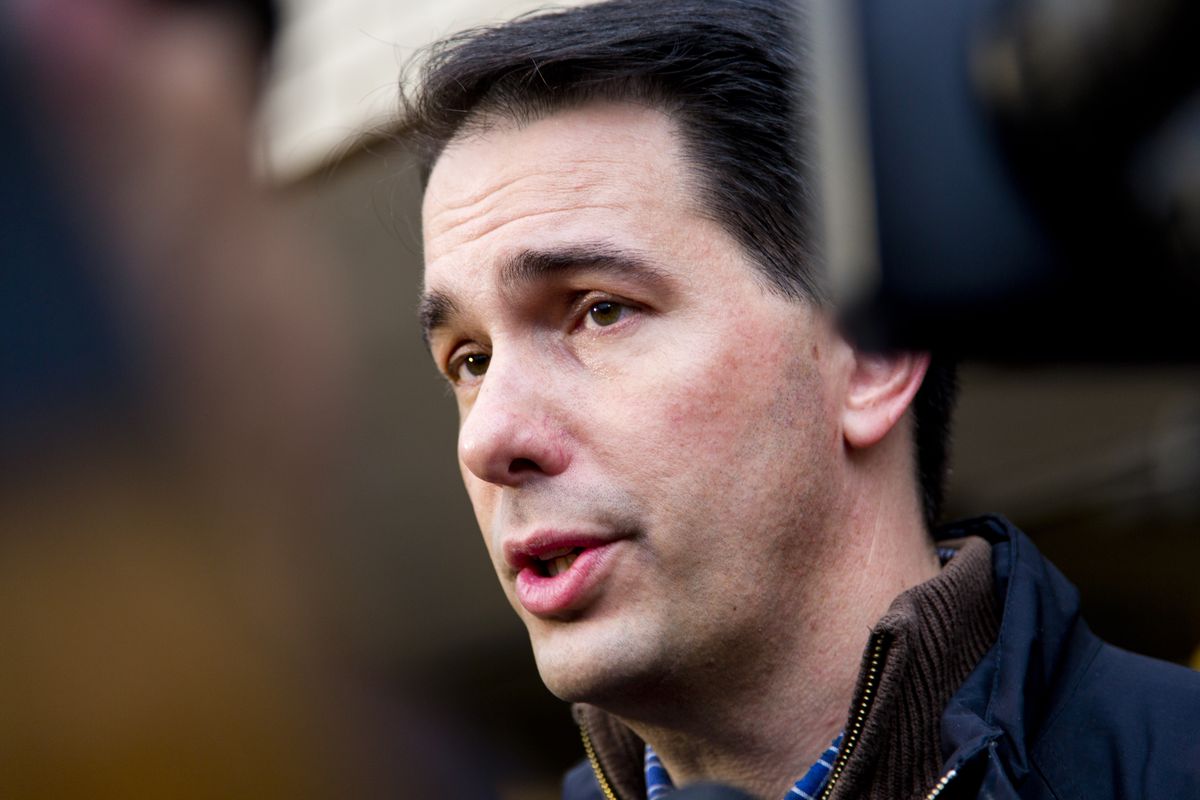
Ever wondered how a state budget can spark both controversy and admiration? Well, Scott Walker's budget is a perfect example of this paradox. Scott Walker's budget has been a hot topic, stirring up discussions far and wide. From significant tax cuts to education reforms, it's packed with decisions that have reshaped Wisconsin's financial landscape. But what's the real scoop behind these changes? Are they as beneficial as touted, or is there more to the story? In this blog post, we'll dive into 23 astonishing facts about Scott Walker's budget that will give you a clearer picture. Whether you're a fan or a critic, these insights will surely pique your interest and maybe even challenge your perspective. Ready to get the lowdown on one of the most talked-about budgets in recent history? Let's get started!
Key Takeaways:
- Scott Walker inherited a huge budget deficit and made big changes to public employee benefits, tax policies, and education funding. His approach sparked protests and controversies but also led to job growth and stable credit ratings.
- Despite facing protests and a recall election, Scott Walker's budget management and economic policies led to job growth, stable credit ratings, and changes in Wisconsin's labor landscape. His tenure continues to influence the state's political and economic landscape.
Scott Walker's Approach to Budget Management
Scott Walker, former Governor of Wisconsin, took a distinctive approach to managing the state's budget. His tenure was marked by efforts to reduce the state's deficit while also implementing policies aimed at stimulating economic growth. Walker's strategies included significant changes to public employee benefits, education funding, and tax policies.
-
Walker inherited a $3.6 billion budget deficit when he took office in 2011. This daunting financial challenge set the stage for his aggressive budget management strategies.
-
Public employee benefits saw drastic changes under Walker's administration. One of his first major actions was to sign Act 10, also known as the Wisconsin Budget Repair Bill, which required most public employees to contribute more to their pensions and health insurance.
-
Act 10 also limited collective bargaining rights for most public workers. This move was aimed at giving local governments and school districts more flexibility to manage their budgets but sparked massive protests.
Tax Policies and Economic Measures
Walker's tenure was also characterized by significant tax reforms and economic measures designed to encourage investment and job creation in Wisconsin.
-
Over $2 billion in tax cuts were enacted during Walker's first term. These cuts included reductions in income and property taxes, intended to stimulate economic growth.
-
The creation of the Wisconsin Economic Development Corporation (WEDC) was another hallmark of Walker's economic strategy. This public-private partnership was tasked with supporting business development and job creation.
-
Walker pledged to create 250,000 new jobs in his first term. While this goal was not fully met, the state did see significant job growth during his tenure.
Education Funding and Policy Changes
Education was another area where Walker's budget decisions had a profound impact.
-
K-12 education funding was significantly reduced in Walker's first budget. These cuts were part of his strategy to address the state's deficit without raising taxes.
-
The University of Wisconsin System faced a $250 million cut in state funding over two years. This decision led to tuition increases and sparked debates about the funding and priorities of higher education in the state.
-
School choice and voucher programs were expanded, allowing more students to attend private and charter schools with public funding. Walker argued that these policies would improve education by increasing competition.
Infrastructure and Environmental Budget Decisions
Infrastructure and environmental policies also reflected Walker's budget priorities.
-
Transportation funding was increased, with a focus on maintaining and improving the state's roads and bridges. This was achieved despite overall budget constraints and without raising the gas tax or vehicle registration fees.
-
Environmental protection budgets were cut, leading to concerns about the impact on the state's natural resources. Critics argued that these cuts would harm water quality and conservation efforts.
-
Public transit funding saw reductions, which critics claimed would affect urban mobility and economic development in cities like Milwaukee and Madison.
Controversies and Challenges
Walker's budget policies were not without controversy and faced significant challenges.
-
Massive protests erupted in Madison, the state capital, in response to Act 10. Tens of thousands of demonstrators occupied the Wisconsin State Capitol for weeks.
-
Walker faced a recall election in 2012, largely due to his budget policies and Act 10. He survived the recall, becoming the first governor in U.S. history to do so.
-
Critics argued that tax cuts primarily benefited the wealthy and corporations, while the cuts to public services and education had a disproportionate impact on middle and lower-income families.
-
The state's budget surplus was touted as a major achievement by Walker and his supporters. However, debates continued over the long-term sustainability of his fiscal policies.
-
Walker's approach to budget management and economic development was seen by supporters as a model for conservative governance. Opponents, however, viewed it as detrimental to public services and the middle class.
-
Despite the controversies, Walker was re-elected in 2014, indicating that a significant portion of Wisconsin's electorate supported his budgetary and policy decisions.
-
Under Walker's leadership, Wisconsin's unemployment rate declined to its lowest levels in years, which he and his supporters cited as evidence of the success of his economic policies.
-
The state's credit rating remained stable during Walker's tenure, with major rating agencies affirming Wisconsin's bond ratings. This stability was seen as a sign of fiscal responsibility.
-
Walker's policies led to significant changes in Wisconsin's labor landscape, with union membership declining as a result of Act 10's provisions.
-
Education reforms under Walker continued to be a point of contention, with debates over the impact on public education quality and teacher morale.
-
Despite leaving office in 2019, Scott Walker's budgetary and policy decisions continue to influence Wisconsin's political and economic landscape. His tenure remains a subject of study and debate among policymakers, scholars, and citizens alike.
A Final Look at Scott Walker's Fiscal Legacy
Scott Walker's tenure as governor brought significant changes to Wisconsin's budget and fiscal policies. From implementing tax cuts to restructuring public employee benefits, his strategies aimed at reducing deficits and stimulating economic growth have sparked both praise and criticism. These moves reshaped the state's financial landscape, influencing not just the immediate fiscal health but also setting a precedent for future governance. As we reflect on these 23 facts, it's clear that Walker's fiscal policies left a lasting imprint on Wisconsin, embodying a blend of bold reforms and contentious decisions. Whether one views his legacy as a blueprint for financial stewardship or a cautionary tale, the impact of his budgetary maneuvers continues to be felt across the state's economic and political spheres.
Frequently Asked Questions
Was this page helpful?
Our commitment to delivering trustworthy and engaging content is at the heart of what we do. Each fact on our site is contributed by real users like you, bringing a wealth of diverse insights and information. To ensure the highest standards of accuracy and reliability, our dedicated editors meticulously review each submission. This process guarantees that the facts we share are not only fascinating but also credible. Trust in our commitment to quality and authenticity as you explore and learn with us.


